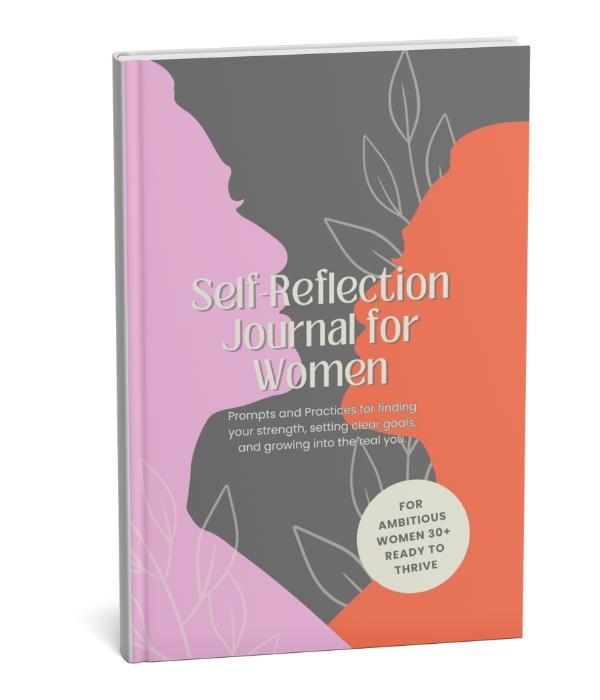Table of Contents
Living in Bali, it’s impossible not to be touched by local traditions. Life here revolves around religious ceremonies and celebrations, but nothing prepared me for the profound digital detox benefits I’d discover during one unexpected day of complete silence.
I once attended a Melasti purification ceremony at the beach, where the vibrant colors of the offerings contrasted sharply with the solemnity of the rituals — I was completely lost but utterly fascinated. Not all of these traditions directly impact expats or tourists. Most of the time, you’re just an observer — unless a local family invites you to a ceremony, which, let’s be honest, isn’t always easy to understand.
I love Balinese culture. Even if I don’t always get it, my deep respect and admiration for these traditions make Bali feel like home for my soul. Thank you, Bali, for welcoming me! But there’s one day a year when everyone, even tourists, has to experience Balinese traditions firsthand — and it taught me more about digital detox benefits than any wellness article ever could.
Nyepi — The Day of Silence (The Ultimate Digital Detox Day)
But there’s one day a year when everyone, even tourists, has to experience Balinese traditions firsthand.
Nyepi is basically Bali’s New Year, but it’s not the kind of celebration you’d expect. The airport shuts down, businesses are closed, you can’t go outside, play music, or even turn on the lights.
Locals follow even stricter rules, but for foreigners, the main thing is simple — stay home and disconnect from the world for a full 24 hours.
Community guards (called pecalang) patrol the streets (and even the beaches!), making sure no one breaks the silence. If they catch someone wandering around, they’ll whistle and send them straight back home.
And let’s be real, it’s usually clueless tourists — locals wouldn’t dare step outside. No one wants to cross paths with demons.
Yep, demons.

According to Balinese belief, on Nyepi, spirits roam the island. If they see light or hear noise, they’ll be drawn to it. And trust me, that’s not something you want to mess with. So, you stay inside and pretend no one’s home.
It’s a full day for reflection, resetting, and just being with your thoughts. The entire island rests — nature, people, everything. This creates the perfect conditions for experiencing genuine digital detox benefits.
The Day Before Nyepi

To really understand how to do a digital detox effectively, I have to tell you about the day before Nyepi. It’s the complete opposite — loud, chaotic, full of music and dancing. People parade massive, handmade demon statues (Ogoh-Ogoh) through the streets, representing negative energy. By the end of the night, they’re burned to symbolize cleansing.
Villagers spend months designing and building these sculptures. People gather, eat, drink, and prepare for performances. This is something you rarely see in the Western world — Bali is all about strong communities, and you can feel it in the atmosphere. I’m always in awe of this island’s culture and traditions.
The energy during the parade is unreal. The music, the giant demons, the performances — it’s intense. Some locals even go into religious trances; I’ve seen people carried out of the crowd. But once it’s all over, everyone rushes home — because at dawn, the demons come.

We left before the celebrations ended, but I was completely mesmerized by the energy of the night. The intensity of the experience, juxtaposed with the impending silence of Nyepi, made me crave a different kind of reset. I posted my impressions on Instagram, scrolled the internet a bit, and as I lay in bed, I decided — tomorrow, I’m doing a social media detox.
Little did I know the universe had bigger plans for my digital detox experience.
My Unexpected Digital Detox Experience
I’ll be honest — first thing in the morning, my fingers were itching to check my socials. I had posted so much last night; I was sure there were messages, likes, and comments waiting for me. But I resisted. Meditated (sort of — my mind kept wandering to my Instagram feed). Did my morning routine, all the while battling the nagging fear that I was missing out on something important.
This internal struggle perfectly illustrates why most people fail at voluntary digital detoxes. Our brains are literally wired for digital stimulation, making social media detox benefits hard to achieve through willpower alone.
Told myself I wouldn’t be too strict — maybe just a little scrolling later. I mean, was I really going to punish myself with a whole day of no dopamine hits?
Also, I actually had work planned for Nyepi. My partner owns a boutique hotel, and it was fully booked. Since we didn’t want to bring in extra staff (Nyepi is way more important for them than for us), most of our team got the day off. Only two employees were working, so we helped set up meals for guests — breakfast, lunch, and dinner.
And then, right as we were prepping breakfast, my partner stormed in, furious.
“No internet.”
Apparently, we had issues the night before, but it came back just before midnight. And now? Dead again. And since it’s Nyepi, no one is coming to fix it. Whether it was the wind, monkeys chewing on cables, or some other Bali mystery — we were stuck. In a fully booked hotel.
Honestly, there was nothing to do but accept it. Sure, we’d probably get some bad reviews. But today, nothing could be changed. I just felt bad for the guests — many were probably planning a chill day watching Netflix or catching up on work. Oops, sorry for the unexpected forced digital detox!
At least we had the best view — an oceanfront that beat any TV screen. And for me? It was perfect. The universe had decided my social media detox wasn’t optional anymore. All my wavering self-control was irrelevant — this was an unavoidable situation. So, I gratefully embraced it.
The Real Digital Detox Benefits I Discovered
The Science Behind What I Experienced
According to research published in the National Center for Biotechnology Information, digital detox interventions show significant positive effects on depression symptoms and overall mental well-being. A systematic review found that participants experienced notable improvements in well-being during digital detox periods.
Additionally, research from the University of Connecticut shows that social media usage releases dopamine and may elevate cortisol levels, creating compulsive usage patterns. What I experienced during my forced disconnection aligns with these documented benefits.
A day without the internet brought me simple joys that I’d forgotten existed. Here are the specific digital detox benefits I discovered:
Enhanced Present-Moment Awareness: I actually tasted my food. Read a book (fell asleep three times while reading, but that felt luxurious rather than lazy). Sipped tea and noticed its warmth, flavor, texture.
Reduced Anxiety: Without the constant ping of notifications, my nervous system finally relaxed. The chronic low-level stress I didn’t even realize I carried began melting away.
Improved Focus: Most importantly, I started my new goal-setting journal. I even wrote down my intention to meditate for 15 minutes every morning. Wrote down my plans for the next few months. Organized my upcoming tasks for Monday. My mind felt clearer than it had in months.
Deeper Self-Connection: The silence allowed me to hear my own thoughts without digital interference. I reconnected with desires and dreams that had been drowned out by social media noise.
Simple Joys in a Day of Silence
Honestly, the Western world could use a Nyepi of its own. It’s not just a reset for people — it’s a reset for nature, for our relationships with ourselves and others.
The internet has taken over our lives so much that we can’t take a single step without it. But sometimes, we just need to stop, turn inward, and disconnect. Nothing will happen if you go offline for a bit. In fact, it might be the best thing you can do for yourself.
How to Create Your Own “Nyepi” Digital Detox
Step-by-Step Guide for Digital Detox Success
Based on my forced digital detox experience and research on digital wellness, here’s how to do a digital detox effectively:
1. Schedule It: Treat it like an important appointment. Block out specific hours or days in your calendar. Research shows scheduled digital breaks are more successful than spontaneous attempts.
2. Prepare Alternatives: Have books, journals, or outdoor activities ready. Nature walks, cooking, creative projects, or face-to-face conversations can fill the digital void meaningfully.
3. Communicate: Let friends and family know you’ll be offline. Set expectations to reduce anxiety about missed messages. Use auto-responders for email and social media.
4. Start Small: If a full day feels daunting, begin with a few hours. Work up to longer periods gradually. Even 2-4 hours can provide significant digital detox benefits.
5. Create Physical Barriers: Put devices in another room, use app blockers, or ask someone to hold your phone. Remove temptation rather than relying solely on willpower.
6. Notice the Benefits: Pay attention to changes in mood, sleep, focus, and relationships. Tracking improvements helps maintain motivation for regular digital detoxes.
Different Types of Digital Detoxes
Mini-Detox (2-4 hours): Perfect for beginners or busy schedules Half-Day Detox (12 hours): Often includes overnight for better sleep benefits
Full-Day Detox (24 hours): Maximum impact for resetting digital habits Weekly Digital Sabbath: Regular practice for ongoing digital wellness
Why We All Need More Digital Silence
The Modern Digital Dilemma
According to research by tech company Asurion, Americans checked their phones 96 times per day in 2019, though their latest 2024 study shows this has increased to 352 times per day. This constant connectivity creates chronic stress, fragmented attention, and decreased life satisfaction. Digital detox benefits counteract these negative effects by:
- Reducing cortisol levels and chronic stress responses
- Improving sleep quality by eliminating blue light exposure
- Enhancing real-world relationships through undivided attention
- Boosting creativity by allowing mind-wandering and deeper thinking
- Increasing life satisfaction through present-moment awareness
Signs You Need a Digital Detox
Watch for these warning signals that indicate you’d benefit from a digital break:
- Feeling anxious when separated from your phone
- Checking social media first thing in the morning
- Difficulty concentrating without digital stimulation
- Sleep problems related to screen time
- Decreased face-to-face social interactions
- Phantom vibration syndrome (feeling your phone buzz when it hasn’t)
The Lasting Impact: A Fresh Perspective
The day after Nyepi, I felt lighter, but also a bit disoriented, like re-emerging from a long dream. It was a stark reminder of how much mental energy I unconsciously devote to the digital world. Ready for new goals, new lessons, and a fresh start.
And I promised myself —I’ll create my own “Nyepi” days more often. Because at the end of the day, it’s about self-love and growth, especially when it arrives through unexpected, uncomfortable moments.
Research from Stanford Medicine confirms what I experienced: regular digital breaks improve emotional regulation, creativity, and overall life satisfaction. The digital detox benefits extend far beyond the offline hours themselves.
Perhaps we all need a little Nyepi in our lives, a reminder to disconnect and rediscover the world within. In our hyperconnected age, the ability to unplug isn’t just beneficial – it’s essential for mental health and genuine human connection.
The most profound digital detox benefits aren’t about rejecting technology entirely, but rather about developing a healthier, more intentional relationship with our digital tools. Sometimes it takes being forced into silence to remember the power of choosing it for ourselves.
Frequently Asked Questions About Digital Detox
Q: What are digital detox benefits? A: Digital detox benefits include reduced anxiety, improved sleep quality, better focus, enhanced creativity, and stronger real-world relationships. Studies show even 24 hours offline can significantly improve mental well-being and stress levels.
Q: How to do a digital detox effectively? A: Start by scheduling specific offline time, preparing alternative activities like reading or nature walks, informing others you’ll be unavailable, and gradually increasing duration from a few hours to full days. Physical barriers help more than willpower alone.
Q: How long should a digital detox last? A: Begin with 2-4 hours for your first digital detox, then work up to 24 hours. Weekly mini-detoxes or monthly full-day breaks provide ongoing benefits without overwhelming lifestyle changes.
Q: What are social media detox benefits? A: Social media detox benefits include reduced comparison anxiety, improved self-esteem, better sleep, increased productivity, and enhanced real-world relationships. Many people report feeling more content and present after social media breaks.














0 Comments